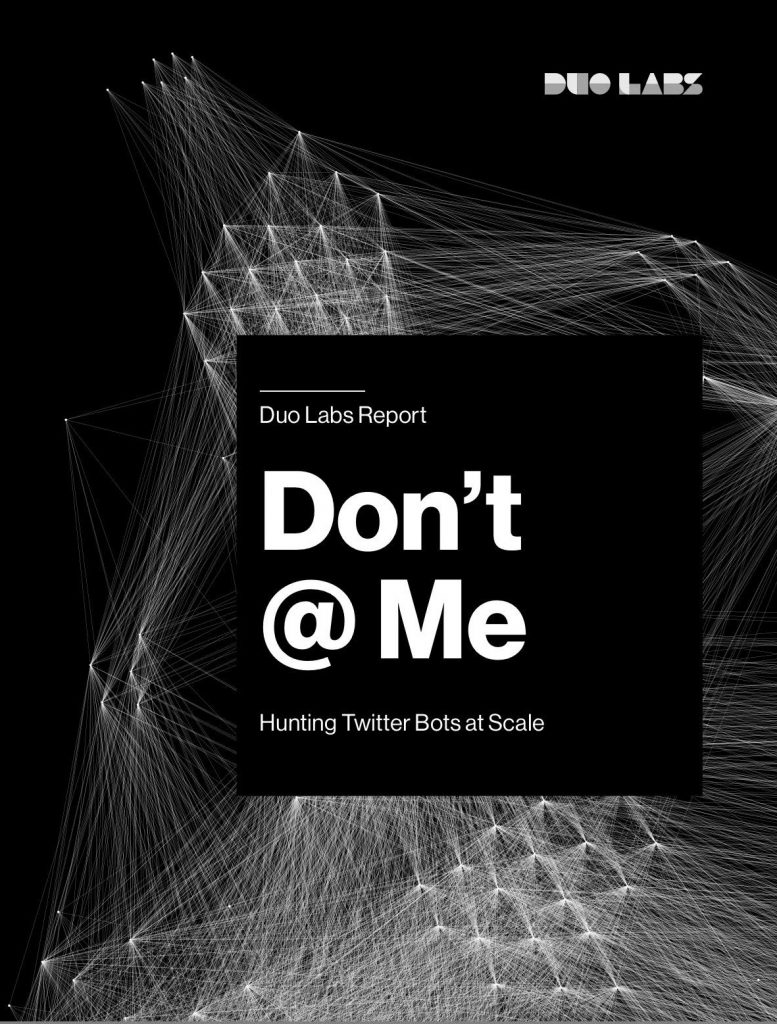
This week, researchers uncovered empirical data confirming what most in the crypto Twittersphere already know – the space if flooded with scam bots: 15,000 of them to be exact, according to Duo Security.
Also read: Queensland, Australia Invests Portion of its $6.1Mil Ignite Ideas Fund in Crypto Startup
Researchers Find 15K Twitter Crypto Scam Giveaway Bots
Don’t @ Me: Hunting Twitter Bots at Scale by Duo Security’s Jordan Wright and Olabode Anise is 46 pages of intense fine-tooth combing of data related to the phenomenon of Twitter bots. “Social networks allow people to connect with one another, share ideas, and have healthy conversations. Recently, automated Twitter accounts, or ‘bots,’ have been making headlines for their effectiveness at spreading spam and malware, as well as influencing this online discussion,” the authors began.
Over three months on their way to present findings at Black Hat USA 2018, researchers detail how they “identified botnets, including a spam-spreading botnet case study,” Mr. Wright and Mr. Anise explain, though they “specifically looked for automated accounts, not necessarily malicious automated accounts.”

Their key findings, published open source, were achieved as they “gathered a dataset of 88 million public Twitter profiles consisting of standard account information represented in the Twitter API, such as screen name, tweet count, followers/following counts, avatar and description. As API limits allow, this dataset was enriched with both the tweets posted by accounts, as well as with targeted social network information (follower/following) information. Practical data science techniques can be applied to create a classifier that is effective at finding automated Twitter accounts, also known as ‘bots.’”
Duo Security is based in Ann Arbor, Michigan, and just this month announced being acquired by Cisco. Cisco is interested in the firm because



